I have the follow scenario:
You need to create a Request before it to become a Shop and to get a Owner Account.
So one day you register a Request. 2 days after a manager reviews and approves your Request and it means that the system have to create the Shop and Owner Account.
In my model, I thought that Request, Shop and Owner Account were 3 Aggregate Roots, but then I read that I cannot update more than one aggregate in one transaction because they may be (and in fact they are, because Owner Account is in an external authentication service) in separated db servers.
The thing is.. I still have a Request, and when it gets approved I need to create 2 aggregate roots, the Shop (with all the shop attributes, I only have some invariants with the data, like the limit of contact emails or phones) and the Owner Account.
Then one Owner Account can be allowed to edit someone else's Shop (like a collaborator)
How could I model it?
Thanks!
